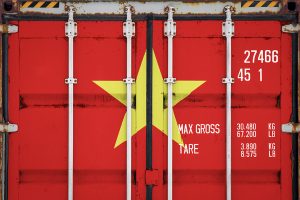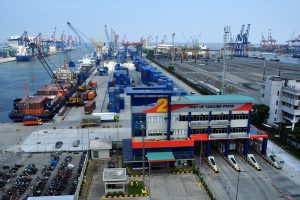 U.S. exports of scrap paper and plastic continued to drop in February, marking the fourth straight month of declining shipments for both commodities.
U.S. exports of scrap paper and plastic continued to drop in February, marking the fourth straight month of declining shipments for both commodities.

 U.S. exports of scrap paper and plastic continued to drop in February, marking the fourth straight month of declining shipments for both commodities.
U.S. exports of scrap paper and plastic continued to drop in February, marking the fourth straight month of declining shipments for both commodities.

Jerry Powell moderating a session at the 2019 Plastics Recycling Conference and Trade Show

Chris Cui on stage at the 2019 Plastics Recycling Conference and Trade Show.
Although the recycling relationship between the U.S. and China was hampered by scrap material restrictions, an expert says companies in both countries can help each other.

Equipment at the facility of polystyrene processor Agilyx, one of the companies mentioned in the Closed Loop Partners report.
At least 60 organizations are working to scale up depolymerization, pyrolysis and other emerging plastic processing methods. The North American market for the resulting products could top $100 billion annually.
 The Chinese government last week issued its latest round of recovered paper import permits, approving 2.5 million tons.
The Chinese government last week issued its latest round of recovered paper import permits, approving 2.5 million tons.
 Chinese officials doubled down on plans to ban virtually all recovered material imports by the end of the year, despite opposition from U.S. interests.
Chinese officials doubled down on plans to ban virtually all recovered material imports by the end of the year, despite opposition from U.S. interests.
 The Vietnamese government has reiterated its plan to phase out scrap plastic imports altogether, noting all scrap plastic will be barred beginning in 2025.
The Vietnamese government has reiterated its plan to phase out scrap plastic imports altogether, noting all scrap plastic will be barred beginning in 2025.
 A recycling expert has offered up criticisms of British Columbia’s extended producer responsibility system for printed paper and packaging.
A recycling expert has offered up criticisms of British Columbia’s extended producer responsibility system for printed paper and packaging.
 After announcing stringent recovered paper import restrictions set to take effect this week, Indonesian officials changed course and postponed the rules indefinitely.
After announcing stringent recovered paper import restrictions set to take effect this week, Indonesian officials changed course and postponed the rules indefinitely.
 Industry stakeholders are pushing back against revived national media focus on the pressures facing U.S. recycling markets. Although those stresses are real, experts emphasize there is another side to the story.
Industry stakeholders are pushing back against revived national media focus on the pressures facing U.S. recycling markets. Although those stresses are real, experts emphasize there is another side to the story.
